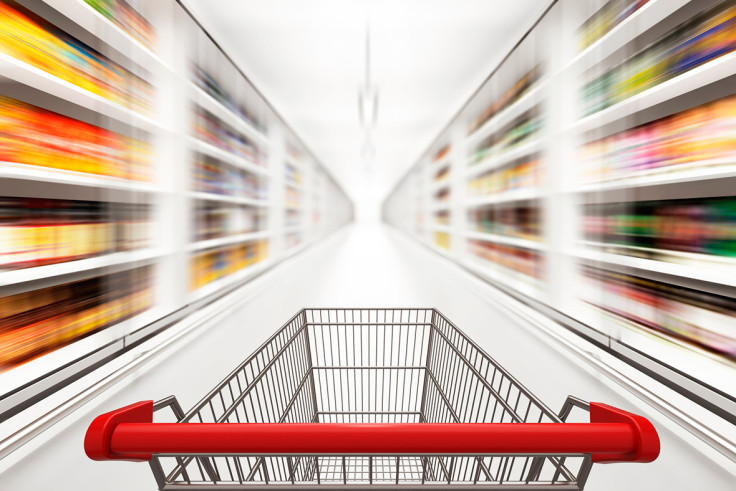UK inflation remains above the Bank of England target in March
Inflation holds steady at 2.3%, as decline in air fares offsets sharp increase in food, alcohol and tobacco prices.

Inflation in Britain rose in line with expectations in March, remaining above the Bank of England's 2% target for the second consecutive month, after breaking through the threshold for the first time in three years, last month.
According to data released by the Office for National Statistics (ONS) on Tuesday (11 April), inflation held steady at 2.3% year-on-year last month, the same rate as the 2.3% reading recorded in February, which was the fastest on record since September 2013.
Higher prices for food, alcohol and tobacco, clothing and footwear, miscellaneous goods and services were among the main contributors to the increase, the ONS added.
However, the increases were largely offset by a downward contribution from transport, with air fares and fuel prices declining, compared with the corresponding period last year.
On a monthly basis, inflation rose 0.4% last month, compared with a 0.7% increase recorded in the previous month and higher than analysts' expectations for a 0.3% rise.
Inflation stood at 0.5% in March last year but the sharp rise has been exacerbated by the pound's ongoing weakness, which has seen sterling fall by some 16% since the June Brexit vote.
However, while inflation stalled in March, analysts warned this was likely to be only a temporary respite.
"Adding to the upward pressure on consumer prices from sterling's fall, airfares inflation should add a few tenths of a percentage point back onto the CPI rate in April, while electricity prices will rise sharply in the coming months as a result of utility companies' price hikes," said Ruth Gregory, UK economist at Capital Economics.
"As a result, we think that CPI inflation will peak at just over 3% before the end of the year. But we don't think that that will panic the MPC into raising rates imminently."
Howard Archer, chief UK and European economist at IHS Markit, added: "We expect inflation to continue to trend up to reach 3% by the end of the year and to likely peak around 3.3% early in 2018 as sterling's weakness continues to feed through.
"This will be uncomfortable for both consumers and the Bank of England. Consumers are facing a serious squeeze as higher inflation is occurring in tandem with muted earnings growth - and this looks set to bite even harder over the coming months."
Data released tomorrow is expected to show that wage growth has slowed down to 2.1% in the past three months, meaning households could see their spending budgets squeezed even further.
A report released earlier today by the British Retail Consortium showed UK retail sales fell 1% on a like-for-like basis in March, the third straight month of decline, as rising inflation forced consumers to be prudent with their spending.
© Copyright IBTimes 2025. All rights reserved.






















